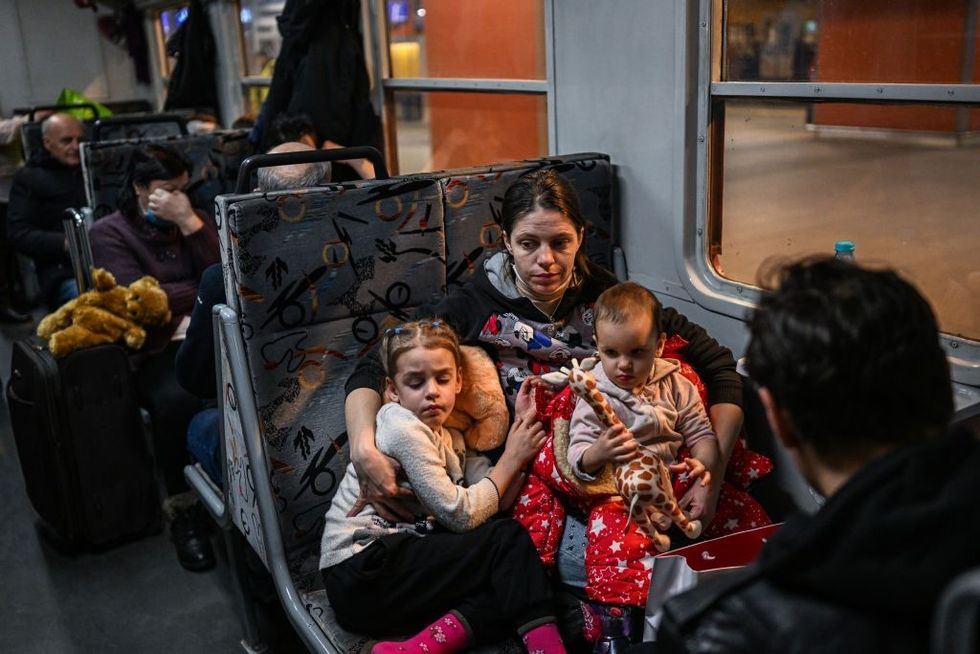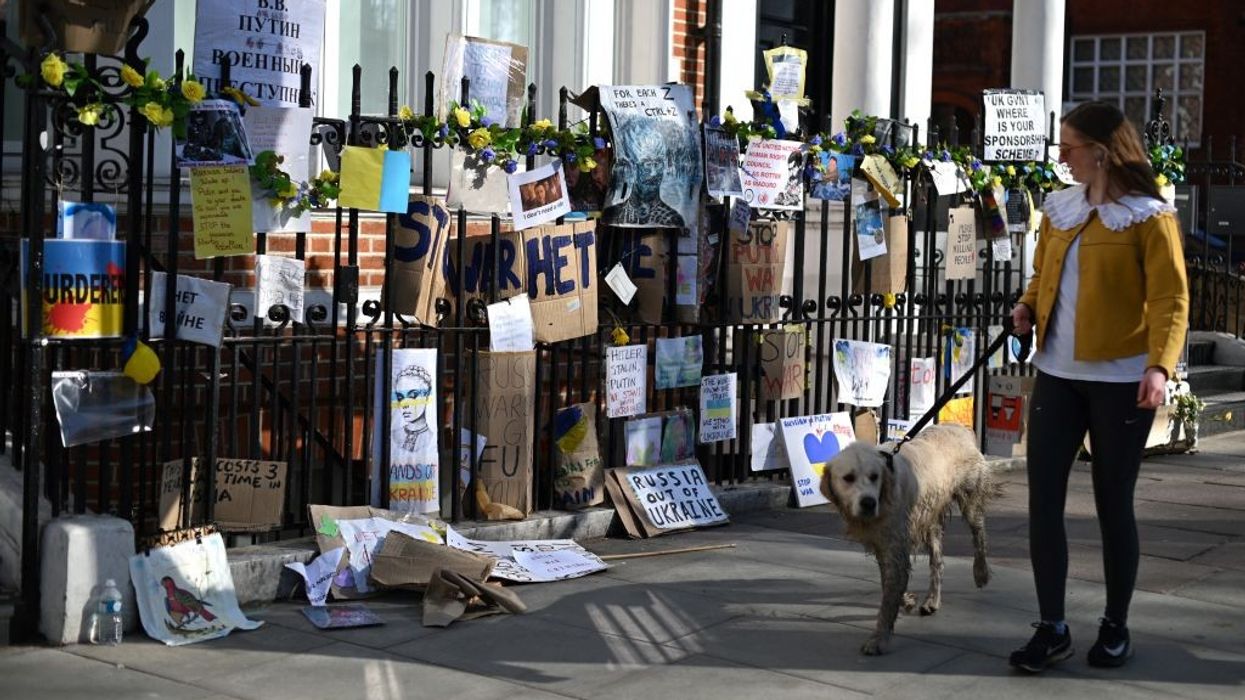NICK BEEVER proudly shows off the pristine spare bedroom at his home in the London suburbs, one of thousands of Britons ready to take part in a government programme to host Ukrainian refugees.
"So this is currently our guest room actually, but we hope to have one, maybe two Ukrainian refugees staying here," Beever said at the home he shares with his wife in Croydon, south London.
"Helping people is one of those duties you have as a member of society, as a human being," said the 32-year-old teacher.
"And, you know, principles aren't principles until you stand by them. And I think the majority of the people in the UK feel the same way about helping people."
So far over 150,000 people have registered to take part in the "Homes for Ukraine" programme helping residents to offer accommodation to Ukrainian refugees, despite concerns over how it will work in practice.
MORE ON RUSSIA-UKRAINE WAR
Japan prime minister’s meeting with Modi to focus on Ukraine
Russian imposters blamed for fake calls to Wallace and Patel
‘Ukraine’s refugee crisis replays the journeys of Ugandan Asians’
Estimated loss
Deaths - Atleast 19 K
Property Damage - US$119B
(from Reuters : 3/21 & 09:22 London, UK)
The scheme enables individuals, charities, community groups and businesses to volunteer accommodation for refugees for a minimum of six months.

The UN refugee agency UNHCR said more than 3.1 million people had fled Ukraine since the invasion -- the biggest migration crisis in Europe since World War II.
Amid criticism that Europe is responding differently to when Muslims have had to flee conflicts, Beever said it "would have been nice to have the opportunity for previous refugee crises".
"They (the government) could have asked during the Syrian refugee crisis, they could have asked during the Afghan refugee crisis, and I'm sure people would have opened their homes then as well," he said.
"We (he and his wife) took some time to discuss it. But it actually turned out to be a very quick discussion in the end, because it was something we both felt that was important and that we wanted to do."
The scheme is open to Ukrainian nationals and their immediate family members and will allow them to live and work in the UK for up to three years, with access to healthcare, benefits and education.
Hosts, who will be given £350 a month, must submit the names of those they wish to sponsor, with NGOs and charities working to identify those most in need.
UK faces criticism
The UK has faced criticism over its Ukraine refugee policy as many have been forced to jump through bureaucratic hoops and travel long distances within Europe to get visas.
From Friday (18), UK sponsors can nominate a named Ukrainian or family to stay with them, while the government is working with charities on the best way of matching people who do not know a Ukrainian.
Robina Qureshi, director of Positive Action in Housing, has said the government scheme is a "smokescreen" for the problematic fact that Ukrainians still need to get a visa before coming to the UK -- something the European Union does not require.
She expects just a "trickle" of refugees to arrive through the scheme because they have to find sponsors in the UK before they can apply and then travel.
"All they've got is expressions of interest, they have not identified individuals to match them up," Qureshi said.
"This is an illusion of people helping because they're distracting from the fact that they haven't lifted visa restrictions."
Beever is aware of the potential challenges of having someone coming from a distant war zone into his home.
"There's obviously going to be language barrier, cultural barriers, someone who has obviously suffered some amount of trauma coming from a war-zone," he said.
"I really hope that we can find some common ground and we get to know somebody really well and... maybe a friend for life, who knows?
"I think our (Britain's) response has been a little slow, considering the amount that other countries have taken, but hopefully this will see that response, the amount of refugees you've already admitted, will go up 10 times."
(Reuters)





